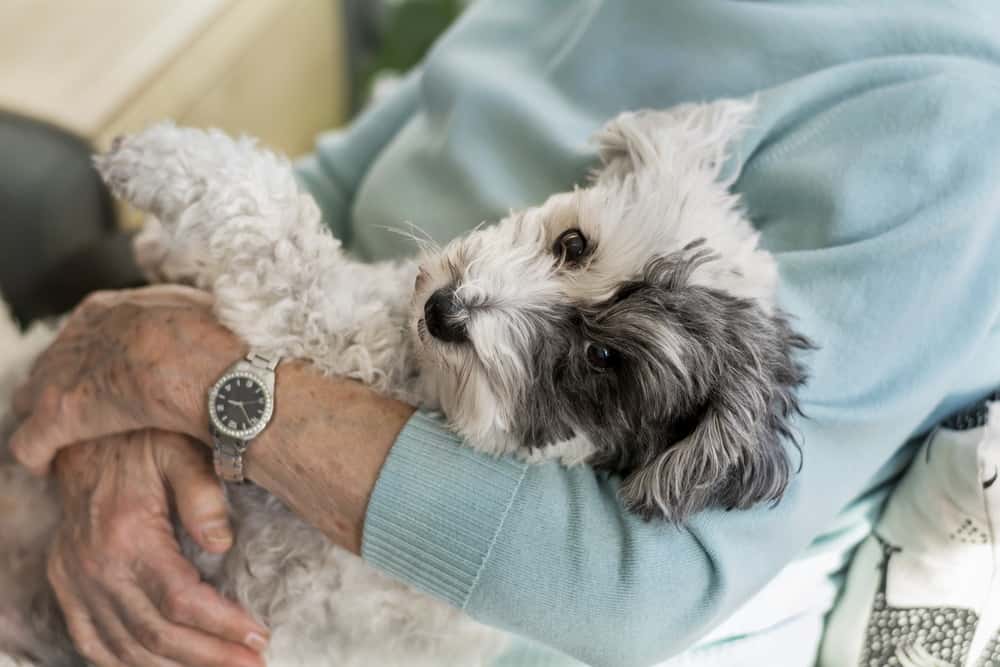“This post contains affiliate links, and I will be compensated if you make a purchase after clicking on my links.”
Dogs have a shorter lifespan than humans, so we often tend to focus more on what could happen to them, than on what could happen to us, and this is completely normal. It is always important to have a plan in place in case your pet has a health emergency. However, it is also important to be prepared for a scenario where you are not there (or not able) to care for your pet.

Emergencies come in many forms, and while most of us prefer not to think about such scenarios, they sometimes do happen, and it’s best to be prepared. Unexpected situations like a car accident or sudden illness can happen to anyone, and as we get older it only gets more likely. Having a plan in place for such cases will not only give you peace of mind, but might also be crucial for saving your pet’s life.
What Can I Do to Prepare for the Worst-Case Scenario?
Emergency Caregivers
When it comes to setting up a plan for your dog in case you are not around to take care of them, the first step should definitely be finding an emergency caregiver. That is, a person who will be able to step in immediately and take care of your pup while you are gone, or unable to feed and walk your pet.
An emergency caregiver should ideally be a close friend or relative, and someone who knows you, your pet or pets, and your living arrangements well. Ideally, it should be more than one person, though. Emergencies are always unexpected, and you never know if your designated person will be available at the time.
“Once you know who your emergency caregivers are, make sure to provide them with all the information they need including feeding instructions and any specific medical requirements your dog might have. Making sure you provide your vets contact information and giving them a key to your home could also be a good idea.” – Dr Kath Dench – Vet Advisor at Gentle Dog Trainers.
In addition to this, it would be wise to let the people in your surroundings know about your pets. Your neighbours and friends should know there is a dog in your home that needs to be taken care of, just in case something happens to you. The contact information of your emergency caregivers should also be readily available. Ideally inside your home and/or in a card inside your wallet.

Permanent Care
Taking care of your dog for a couple of days is one thing, and permanent care in case you’re gone is another. Depending on where you live, there might be some humane organizations or shelters that can provide (usually temporary and sometimes permanent) care for dogs of deceased owners. However, this kind of solution is really not the best, and should only be used if there are no other options available. Dogs need human companions to be happy, so it’s best to find a proper custodian.
But how to find a permanent caregiver? This is definitely not an easy task. It should be someone you really trust will take proper care of your pet. That’s a big responsibility too, so you should definitely discuss your expectations before making an agreement. Ideally, you should designate more than one permanent caregiver, as everyone’s life circumstances can change at any given point.
Finally, pet care arrangements can be formal or informal. If you want to be 100% sure your pet will be well taken care of, a formal arrangement might be a good idea. Such arrangements can be formalized in the form of a will or a trust. To find the best solution for you it’s a good idea to consult an attorney, as regulations vary from country to country.
Final Thoughts
Thinking about the day you might be gone is never pleasant. However, having a proper plan in place can make a world of difference for the future of your canine companion. Cases where a person’s pet was discovered days after an unfortunate event are not unheard of – and any responsible pet parent will do anything in their power to avoid this. Having a designated emergency caregiver should prevent such situations from happening, but if you want to ensure your dog has a happy life even if you are not there, some long-term planning is also necessary.
About the Author: Vedrana Nikolic is a professional writer with a B.A. in Cultural Anthropology and currently pursuing a MA degree in Semiotics studying the communication between animals and humans.















